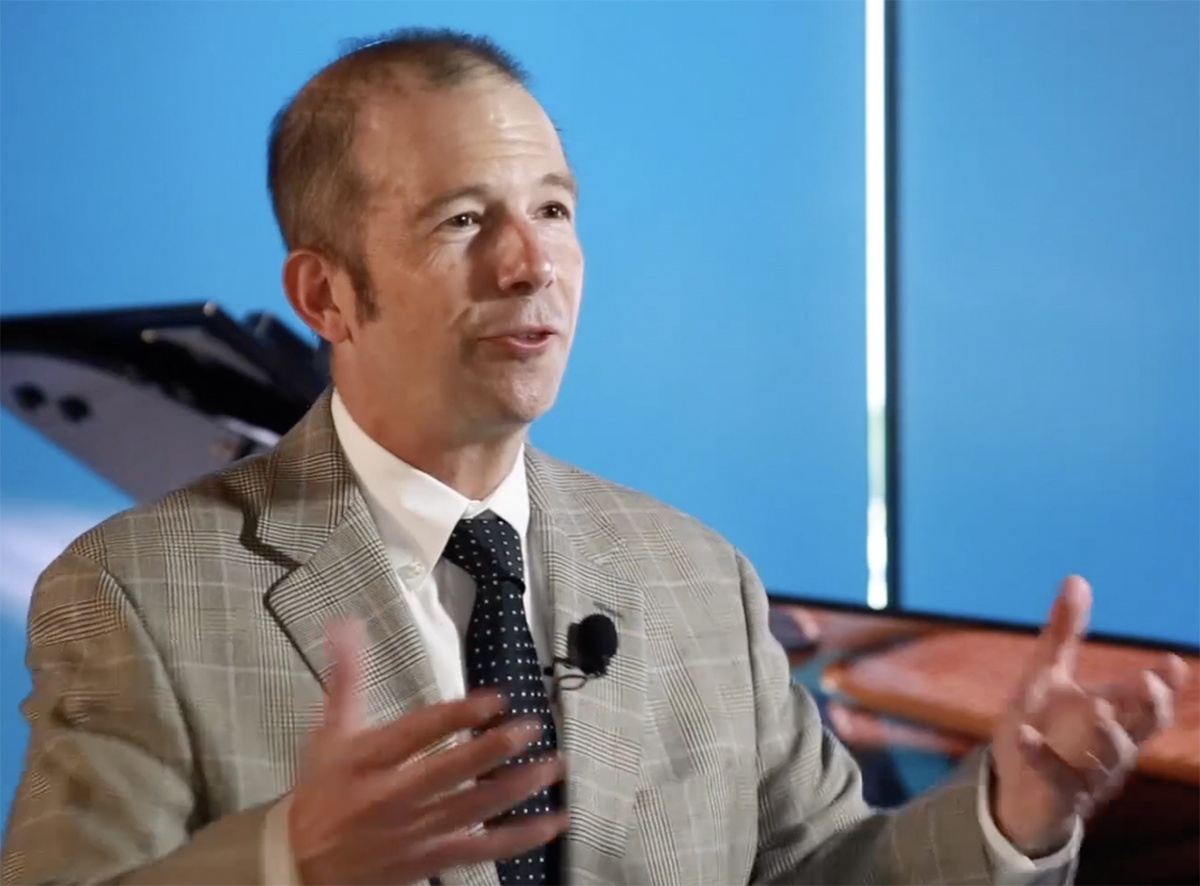When former staff members at First Baptist Church of Knoxville, Tenn., read accounts of how faculty and staff at Northern Seminary said they had been mistreated by President Bill Shiell, they recognized a cautionary tale they wish all congregations and Christian institutions knew.
For some, reading the allegations of verbal abuse and retaliation triggered memories long suppressed — stories they have told few people because of how powerless they felt against a highly respected pastor who they say secretly made their lives a living hell. And they warned such power, left unchecked, can harm multitudes of subordinates throughout a similar career.
Six former ministers who served with Shiell at First Baptist Church of Knoxville during his nine-year pastorate there reached out to Baptist News Global to tell their stories for the first time. They did so, they said, not to seek retaliation but to warn other churches and institutions about the need for thorough vetting of leaders and to encourage better systems of accountability for pastors and institutional leaders who are given carte blanche as CEOs.

Bill Shiell
“When it looks shiny on the outside, when attendance is good and giving is going well, when good things are happening, it can be hard for laypeople to believe things are bad behind the scenes. People want to believe good things about their pastor,” said Carol McEntyre, who served seven and half years on staff at Knoxville as community minister and now is a senior pastor in Missouri and is a former moderator of the Cooperative Baptist Fellowship.
She and her husband, Michael, both served on that staff and are among those who have decided to break their silence in hopes they can spare others the pain they experienced.
They all told stories of being made to do menial tasks as retribution — like cleaning toilets in one case — and assigned to new duties they had no experience or interest in doing. And they told a common story — independently — of watching person after person get ground down.
“Shortly after I was hired at First Baptist Knoxville, the part-time children’s minister resigned. I was talking with Bill about it one day, and he told me, ‘I put the screws to her until she quit; I just piled the work on until she resigned.’ His comment shocked me, but this was my first sign of what was to come,” Carol McEntyre said.
“If you haven’t worked for Bill, I know this can be hard to believe, because he is brilliant and charismatic. But behind the scenes, as a boss, he is a different person.”
“If you haven’t worked for Bill, I know this can be hard to believe, because he is brilliant and charismatic. But behind the scenes, as a boss, he is a different person.”
‘How does this happen?’
“How does this happen? People always want to assume the best of the pastor,” said Michael McEntyre, who served as youth minister at the Knoxville church. “But we had no recourse. There was no place for a staff member to report a problem. There was no hope to talk to the Personnel Committee without Bill present. There was no system. Bill controlled that system very succinctly.”
Carol added: “I don’t ever remember even one time meeting with the Personnel Committee. We were totally isolated.”
This is not because the congregation of the Knoxville church is uncaring or unloving, both McEntyres and others said. They emphasized their love for the people of the church and recalled many good things that happened there. Only near the end of Shiell’s tenure did lay leaders comprehend what had been going on, they believe.
The problem they want to highlight is how pastors and institutional leaders can so easily manipulate the image they project of their successful leadership while stepping on other staff members, how strong-willed pastors can hand-pick lay leaders around them and control the flow of information.
What set off most of these former Knoxville staffers was the resignation letter Shiell wrote and the accolades he received from the board of trustees.
What set off most of these former Knoxville staffers was not just the accounts told by Northern Seminary faculty and staff, but the resignation letter Shiell wrote and the accolades he received from the board of trustees — even though that board was not willing to let him stay as president.
Shiell’s letter stated: “I have done everything in my power to prevent the kind of abuse of authority that has been publicly alleged about my character and leadership. I am very grateful that in January, the board’s independent investigator concluded that there have been no financial improprieties or grounds for claims of misogyny, racism or discrimination.”
The board’s own statement commended Shiell for his “dedicated service to the seminary” and “his deep commitment to women in leadership and racial justice.”
To Northern faculty, staff and students who were alarmed by the allegations brought against Shiell by at least 17 current and former seminary employees, the board’s praise for Shiell while shuffling him out the door sounded hypocritical and hurtful.
This is what has caused one-third of the student body to sign a letter expressing no confidence in the board of trustees. And this is what finally prompted the former Knoxville staff members to speak up. They knew this story and had lived it before, they said. What Shiell’s allies and friends saw as “strong” leadership and “high expectations” they experienced as harmful and demeaning behavior, they said.
BNG reached out to Shiell for comment on this story, and he has not yet responded. In his resignation letter to the seminary, he defended his record and denied all charges of bullying.
Former staff members from Knoxville said they were not surprised by Shiell’s lack of remorse for the serious charges leveled against him. Only once did they ever hear him apologize to his staff, and that was followed by increased tensions with those he thought had publicly questioned him.
Reading the news from Northern Seminary resonated with every former staff member from Knoxville she spoke with, Carol McEntyre said. “It’s like they were reading our mail.”
“We would have kept quiet if Bill had taken any responsibility for his behavior.”
“We would have kept quiet if Bill had taken any responsibility for his behavior, but his resignation letter makes it clear that he is in complete denial regarding how his behavior harms people,” she said.
Made to clean toilets
According to multiple eyewitness accounts, Shiell’s first target in Knoxville was Jerry Seale, who had served three decades as minister to the deaf congregation.
What started the trouble, Seale believes, was a $4,000 grant in 2005 to help fund visitation and outreach to the deaf community. Shiell had signed off on the grant application but then reversed course and did not want Seale to keep or use the money, he said.
Seale also was in the process of helping launch a Spanish-language congregation. He went on a sabbatical granted to him in recognition for his 30 years of service but returned in late 2005 to a changed environment.
In December 2005, “Bill asked for a reentry meeting with me,” Seale explained. “We got the grant while I was away and started spending $500 a month from the grant.” But on June 25, 2006, “Bill asked me to come into his office and said he had told me to send the grant back; he did not want to give the impression we were spending more on the deaf congregation. He was going to take me to the Personnel Committee. He imposed a gag order on me and said if I spoke any more about this, he would fire me.”
When Seale consulted one other knowledgeable person to ask if Shiell could, in fact, fire him, he was told the pastor’s contract said he was the CEO and he could fire anyone he wanted.
Seale never had opportunity to tell his side of the story to anyone at First Baptist because Shiell controlled access to the Personnel Committee, Finance Committee and deacons, Seale said. “Each time I spoke to those groups, he was there to make sure I didn’t challenge the truth of his story.”
“Each time I spoke to those groups, he was there to make sure I didn’t challenge the truth of his story.”
Among all the ways he experienced retaliation from Shiell, “the gag order was the most abusive thing he did,” Seale said. His colleagues on staff “didn’t know anything about it. I was quite threatened by the power he had to dismiss me.”
Carol and Michael McEntyre and other former staff members confirmed this account, saying they only learned after the fact what had happened. They all observed that something was amiss, but they knew not to ask too many questions.
After this, Seale said, Shiell “started doing some retaliation on me. He asked me to take on the college ministry, … then to be the crossing guard for children coming on Wednesday nights.”
When Seale declined those additional assignments, Shiell “sent me to the kitchen to work the Wednesday night meals. Then he asked me to take care of the toilets in the fellowship hall.”
This “continued to escalate” and yet “no one seemed to know about it because I couldn’t talk about it.”
The minister to the deaf community was required to go to weekly meetings with Shiell and to “write down what I did every 15 minutes. He took me away from the Hispanic congregation I helped start. … Also, in the meetings, he continued to humiliate me and criticize me and my work among the deaf, even though he didn’t know anything about it. … His secretary was invited to sit in and take notes in these meetings. … She later said she wouldn’t do that anymore.”
Throughout this ordeal, Seale said, he wanted to challenge Shiell but feared the consequences of doing so. “I had to tolerate his harassment and bullying.”
Eventually, Seale was told if he would leave quietly when he turned 62, things would go better for him.
“Somehow, a significant member of the church who was a lawyer came to me and said they would be willing to represent me against Bill and the church,” Seale said. “I don’t know how they knew. I did not want to create a rift that would embarrass the church. However, each time I tried to talk to someone about what was going on, I was told we have to let the pastor do what he does.”
Seale resigned two months before the deadline he had been given and began a new life as a marriage and family therapist. Fellow staff members uniformly describe him as one of the most caring and compassionate ministers they’ve ever known.
“Leaving First Baptist Church was like losing an arm.”
“Leaving First Baptist Church was like losing an arm,” he said. “And that’s saying a lot for someone who interprets for the deaf using both hands in sign language.”
When Shiell first arrived, Seale said he was impressed and “I loved him. I thought he was an incredible communicator. … That’s what made these events more painful, that I cared so much for him. … But he neutralized any passion for ministry.”
Seale summarized: “When I read the Northern report, it read like my story.”
The pattern builds
When Michael McEntyre began at First Baptist, he also loved Shiell and thought of him as a friend, he said. He and Carol were excited to work with Shiell since they graduated from the same seminary — Truett — and knew many of the same people from their time at Baylor.
“I thought I was in Bill’s inner circle,” Michael said. “I thought I was his friend until I found out he had tried to fire me. I found that out from the parent of a youth who served on the Personnel Committee.”
At that point, McEntyre had never had a negative personnel review, never a complaint, he said, yet from this Personnel Committee member’s perspective, Shiell wanted him gone.

First Baptist Church of Knoxville
After he asked Shiell about why he was seeking to fire him, McEntyre, too, was required to submit to weekly supervision meetings with the pastor, just as Seale had been.
“I would have to type up my explanation of my week. … I had to give him my agendas for my Sunday school teacher meetings, what I would do with my student leadership council. I had to send those to him days in advance.”
The youth minister got a brief respite when a new associate pastor was hired and took over his supervision. At that time, he was given a coach, whom he found to be helpful.
Yet later, on a visit in Shiell’s office, McEntyre recalls being asked: “What are you and your coach working on?” When McEntyre answered in general terms, he recalls he was told: “This isn’t working. I gave your coach things she was to talk to you about, and she was supposed to report to me what you all are talking about, and she hasn’t.”
McEntyre was angered by this and cut off future visits with the coach.
Carol McEntyre recalls a staff meeting where she says Shiell said to Michael McEntyre: “If your youth ministry numbers don’t start growing and you aren’t bringing in parents who can give more money, I’m going to cut your budget.” Then he said the same thing to the children’s minister, she added.
“I had to take medication to go to staff meeting.”
By the accounts of several former staff members interviewed for this article, weekly staff meetings were terrifying and unpredictable.
Michael McEntyre began experiencing anxiety attacks, he said. “I had to take medication to go to staff meeting.”
The trauma he experienced, McEntyre said, was so severe that “there were years of my life where the majority of my time was spent thinking about what Bill Shiell had done or was doing to me and our youth ministry.” Even after he moved to another state and a new ministry, “it took a good year or more until I went to bed at night and could say, ‘I didn’t think at all about Bill today.’”
Isolation and lack of support
While Shiell’s leadership style was experienced negatively by both men and women, the women who worked on his Knoxville staff — like women on the seminary staff — felt they got an extra dose of it. And they said they were perplexed by a disconnect between his public affirmation of women in ministry and his lack of any action to encourage women in ministry.
Yet it’s perhaps not fair to call Shiell a misogynist because he was equally abusive to men and women, they all said.
Lisa Williams Hood, lasted less than two years as the church’s part-time minister to college students. This was her first job out of seminary, and she was excited for the opportunity. Yet she realized within the first year “this was not going to work out for me. I was very naïve.”
When the college ministry didn’t experience tremendous growth as Shiell had hoped, he began threatening her, Hood said. “He did not understand why I was unable to bring hundreds of college students to the 8:30 service every Sunday. It was at 8:30 in the morning.”
“I always felt like I was held personally responsible for it not being perfect.”
Hood’s college ministry budget was cut, and she was assigned additional tasks not in her skillset, she said. Her extra duty was to help produce the 8:30 contemporary worship service, which did not go well, she said. “I did not find that to be a very fruitful experience. It increased my anxiety greatly. … I always felt like I was held personally responsible for it not being perfect.”
She explained: “I never felt I was taken seriously by him as a fellow minister. I was consistently underestimated. I was very aware that I was new and green, but there was no effort made on his part to mentor me or to offer wisdom in how one goes about doing this thing called pastoral ministry.
“I learned a lot about how not to be a senior pastor. How not to treat staff. It bothered me that I was expected to show up and support him whenever he was preaching on campus, for example, but there was no reciprocity in that. As a young woman who was entering the world of ministry in that still heavily Southern Baptist environment in the community at large, I don’t recall him ever showing up to listen to me preach. I don’t even recall him being curious about how it went, which I would have greatly appreciated, and it would have been a true indication of actually supporting women in ministry.”
Carol McEntyre, although somehow spared the worst treatment other staff members said they experienced, also noticed Shiell’s vocal support for women in ministry did not match his controlling actions.
“He knew I wanted to preach. He gave me as few opportunities to do that as possible.”
“Bill knew I wanted to be a senior pastor,” she said. “He knew I wanted to preach. He gave me as few opportunities to do that as possible. For example, he went on sabbatical for three months and did not ask me to preach one time, which was very hurtful.”
‘It’s not just me’
What finally helped all the staff endure was when they realized none of them was in this alone, Michael McEntyre said. Although each staff person had been isolated, there was one key event where the bottle came uncorked.
That was an all-staff retreat led by an outside consultant. It was there, he said, “the staff all had this moment where we realized, ‘It’s not just me.’ We all felt this micromanagement. And once we all realized it was all of us, it got better. It got more tolerable.”
Carol McEntyre is a dedicated journaler. She referenced her journal from the time of that staff retreat in February 2008 to summarize:
“Our retreat leader, ironically, had us read a book called Fierce Conversations. The retreat leader must have sensed something was wrong because he asked about the trust level among the staff. We were all quiet for a long time, then I spoke up and said, ‘Bill, we are miserable. We can’t do anything without your approval or permission.’ Another minister jumped in and said, ‘The micromanaging is killing us. I put all this work in, and I come to you, and you totally change it. I had rather you just do it.’
“Other staff members chimed in too. ‘You have taken away our joy,’ one of the staff said. We were all honest about our frustration and despair. Several of the ministers started to cry. Surprisingly, Bill responded in humility and said, ‘I am sorry,’ which stunned us, but his behavior didn’t change.”
“We left that meeting, and it was game on for everybody. We were all going to pay for that.”
In fact, according to Michael McEntyre, there was hell to pay for that retreat moment. “We left that meeting, and it was game on for everybody. We were all going to pay for that.”
Two years later, lay leaders in the church sensed something was wrong with the staff and brought in another consultant.
Again, Carol McEntyre wrote in her journal about this. She recalled: “The consultant conducted interviews with the ministers and support staff in September. Fourteen of us in all, if I remember correctly. In October, the consultant returned to give their report. The entire ministerial staff, the initiating lay leaders and Bill were in the conference room to hear the report.
“The consultant presented his findings in a PowerPoint. The consultant said that after interviewing all the staff, the consensus was that Bill Shiell’s leadership was the source of contention and unhappiness among the staff.
“In my journal that day, I recorded what was in the report. It said:
- Bill micromanages the staff.
- He does not celebrate successes.
- He underestimates how long it takes to do a task.
- He overworks and undervalues the staff.
“But afterward, Bill buried the report and refused to allow the consultant to do any more work with the staff,” McEntyre said.
“Bill buried the report and refused to allow the consultant to do any more work with the staff.”
That consultant, who asked to remain anonymous, confirmed this account.
Why speak up now?
Why are these staff members speaking up now after all these years?
“We want to support the 17 former and current staff members at Northern Seminary who have been victimized by Bill Shiell and amplify their voices,” Carol McEntyre said. “His behavior at Northern is clearly part of a longstanding pattern of harm. We want to go on record and say the same things happened to us.”
If the board of trustees at Northern Seminary had done its work in vetting Shiell before he was hired, all this information could have been known, both McEntyres said. This should be a reminder to pastor search committees and presidential search committees not to rely only on the references a candidate gives, Michael McEntyre added. “
That’s the same warning another former staff member gave in a recent letter to the editor at BNG.
Tim Norton was one of three associate pastors who served with Shiell during just nine years. Norton lasted less than two years in that role and said he, too, was forced out by Shiell’s micromanagement and bullying.
“I was not the only target of bullying, retaliation and other completely inappropriate treatment; and, yes, I witnessed misogyny — often cleverly veiled.”
“My resignation was not something I wanted and, so I would come to find out much later, neither did a majority of the congregation,” he wrote. “However, having experienced the same kinds of treatment reported by staff at Northern Seminary at the hands of their now-former president, I can tell you I was not the only target of bullying, retaliation and other completely inappropriate treatment; and, yes, I witnessed misogyny — often cleverly veiled.”
Norton connected the dots from First Baptist Knoxville to First Baptist Tallahassee, where Shiell went next, to Northern Seminary.
“When First Baptist Church of Tallahassee’s leadership was struggling to understand if what was being reported by some staff was true, a deacon reached out to me, inquiring as to my experience while on staff at First Baptist Knoxville,” Norton said. “I told the truth about my experience, and, for further inquiry, I provided names of former staff and church members. ‘Miraculously’ within a few short months, a new ‘calling’ resulted in a pastoral vacancy in Tallahassee and the new president at Northern Seminary in early 2016.”
This is the warning, he urged: “Please, leaders — boards, deacons, elders, others — for God’s sake, and for the sake of the church and institutions of the church, do not ignore and bury the truth about bad behavior when it occurs, lest it destroy peoples’ lives and the churches and institutions you lead. Call it out. Force professional help. Tell the truth rather than defend bad behavior. And, most importantly, care for the victims.”
This echoes the recent demands of students at Northern Seminary, who urged trustees there to tell the truth.
Hiding behind non-disclosure agreements and allowing Shiell to craft his own exit story only “perpetuates harm to our own community,” the students said.
Related articles:
Shiell resigns as Northern Seminary president
Northern Seminary’s Shiell on leave while trustees investigate bullying accusations


